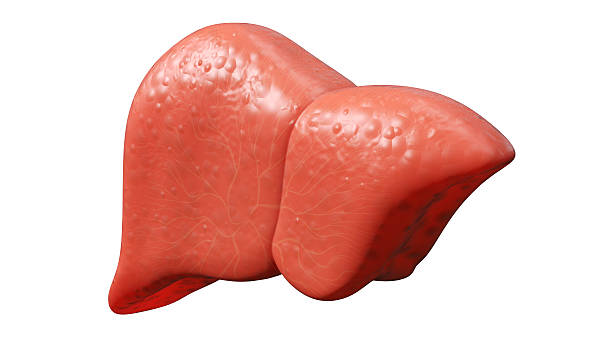Cirrhosis is the scarring of the liver that can interfere with its function and lead to liver damage. It is a progressive condition which usually occurs in the late stage of liver disease, where scar tissues gradually replace the healthy tissues of the liver.
This is usually common with liver diseases like hepatitis, which is the inflammation of the liver. Then, the liver attempts to repair itself by scarring, but the scar tissues can become too much and can stop the normal function of the liver, leading to liver failure.
Causes
Common causes of cirrhosis include:
- Hepatitis.
- Exposure to toxins.
- Long-term high alcohol consumption.
- Genetic diseases.
- Non-alcohol-related steatosis.
- Autoimmune biliary disease.
- Cardiovascular disease.
- Wilson’s disease (accumulation of copper in the liver).
- Hemochromatosis.
Symptoms of Cirrhosis
The symptoms of cirrhosis are not easily detected because they do not always appear until liver damage is severe; however, when symptoms occur, they will include:
- Nausea.
- Fatigue.
- Itchy skin.
- Loss of appetite.
- Easy bleeding or bruising.
- Swelling in the legs, ankles or feet (oedema).
- Weight loss.
- Spider-like blood vessels on the skin.
- Drowsiness, confusion or slurred speech.
- Yellow discolouration in the skin and eyes (jaundice).
- For women, an absence of or loss of periods that is not caused by menopause.
- Redness in the palms of the hands.
- Fluid accumulation in the abdomen (ascites).
- Clubbing of the fingers and they become rounder than usual.
- For men, testicular shrinkage, loss of sex drive, or breast enlargement (gynecomastia).
- Pale fingernails, especially the thumb and index finger.
Treatment
The scarring of the liver in cirrhosis is permanent, so it can’t be undone. The liver has great healing powers; still, cirrhosis usually occurs at a stage of disease where the liver doesn’t have enough healthy cells left to enforce healing on itself.
So, the only option left is to slow down or stop the condition from progressing. This process will depend on the cause of the cirrhosis, how treatable the cause is and how well the patient responds to treatment.
Therefore, here are the four major treatment options for people suffering from cirrhosis
Managing the Underlying Causes
For cirrhosis caused by hepatitis, a doctor will prescribe antiviral medications to limit damage to liver cells. If it is caused by alcohol-related liver disease, then abstinence from alcohol will be recommended, and a special treatment may also be recommended for people with alcohol dependency.
Lifestyle changes such as changes in diet and weight management can help manage cirrhosis caused by non-alcohol-related fatty liver disease (NAFLD). Lastly, cirrhosis caused by other underlying conditions will also require medications to slow their progress.
Treating the Symptoms
Many side effects and complications occur during cirrhosis treatment, and some cirrhosis symptoms need separate treatment for the patient to live a regular life.
For example, portal hypertension is a common complication of cirrhosis, and medications can be used to reduce the high blood pressure in the portal vein. Hepatic encephalopathy is also a common complication that can be treated by using medications to manage toxin levels in the blood.
Lifestyle Changes
When a person is diagnosed with cirrhosis, they must make lifestyle changes to protect their liver. For example, abstinence from alcohol, limiting the intake of salt, protein, and fat, avoiding raw or undercooked meat and shellfish, and using diet and exercise to manage body weight if necessary.
Liver Transplant
A patient with cirrhosis may need a liver transplant if their health continues to decline without one. For example, in cases of chronic liver failure, liver cancer or liver disease that isn’t responding to treatment, a liver transplant will be recommended.



